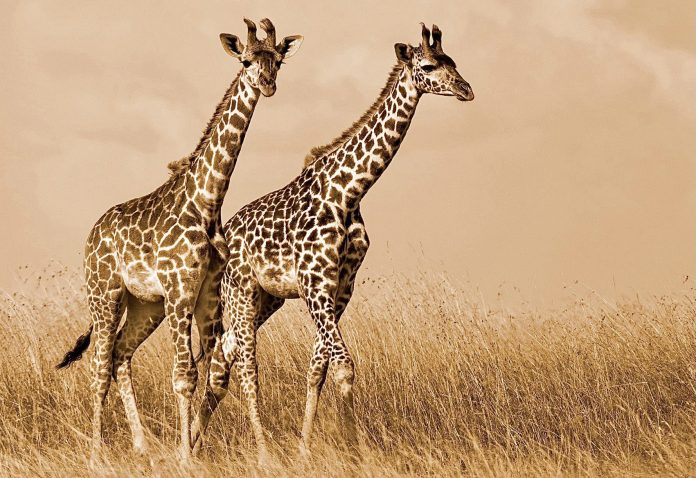
Conservation & Animal Protection Groups Sue USFWS For Failure To Protect Africa’s Giraffes After Their Population Declines By 40%
You can help all animals and our planet by choosing compassion on your plate and in your glass. #GoVeg
RELATED ARTICLES
Banning Cruelty: New Legislation Aims To Ban Octopus Farming In The U.S.
New bipartisan legislation has just been introduced in the U.S. to ban commercial octopus farming and prohibit imports of farmed octopus from foreign countries.
The...
Outrage In Yellowstone! Grizzly Bear Killed By Wildlife Officials & Left With Head & Paws Cut Off
Photo by: Trisha McFarland / Cowboy State Daily
A photo of a dead grizzly bear with its head and paws cut off has caused an...
Inside Florida’s Illegal Horse Meat Trade: Undercover Footage Shows Racehorse Being Shot & Butchered
A heart-wrenching discovery of illegal horse slaughter has emerged, with video footage exposing the tragic killing of a racehorse named 'Funny Biz,' who was...
Popular stories
Three Endangered Humpback Dolphins Were Released Back Into The Ocean After Being Illegally Captured & Sold To A Resort In Bahrain
Some hopeful news as three humpback dolphins have been released more than a year after being illegally captured for display at an aquarium in...
News
Over 600 Wild Horses Have Been Rounded Up In Colorado By The Bureau Of Land Management; Tell Them To Put An End To Cruel...
The Bureau of Land Management's (BLM) roundup of Sand Wash Basin wild horses in Colorado concluded yesterday. Since the roundup began on September 1st, a total...
Industry News
Breaking! Jeff Bezos Launches $10 Billion Dollar Bezos Earth Fund To Help Fight Climate Change & Save Our Planet
Amazon CEO and noted billionaire, Jeff Bezos, took to social media today to share the news that he is launching a new 10 billion...


